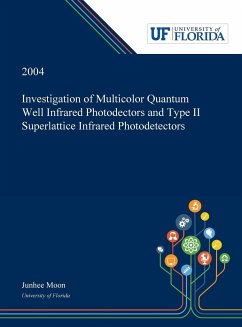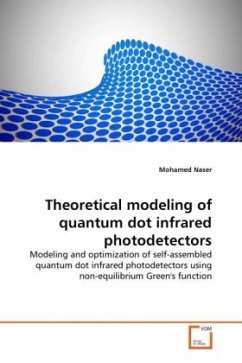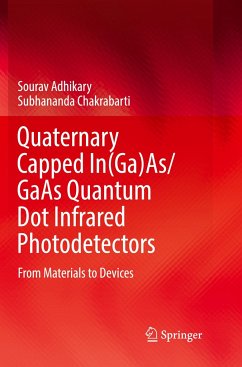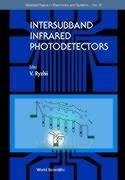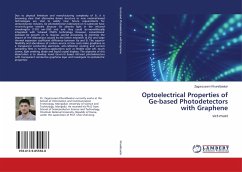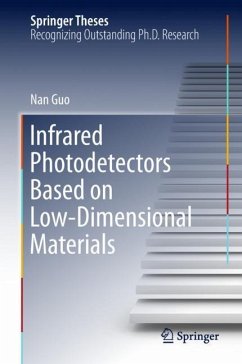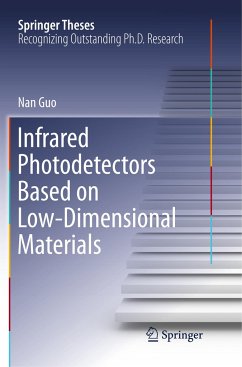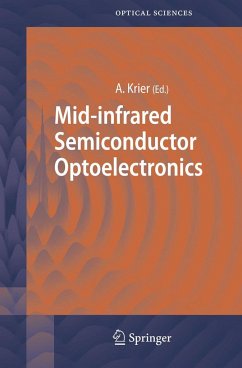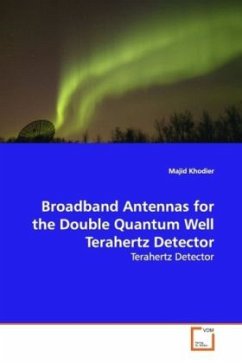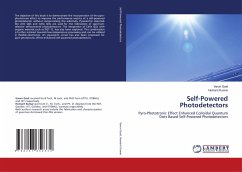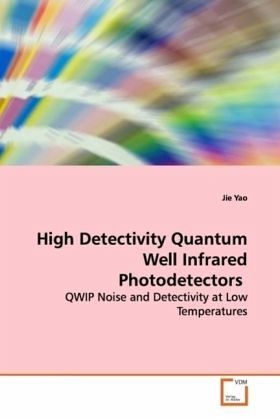
High Detectivity Quantum Well Infrared Photodetectors
QWIP Noise and Detectivity at Low Temperatures
Versandkostenfrei!
Versandfertig in 6-10 Tagen
32,99 €
inkl. MwSt.

PAYBACK Punkte
16 °P sammeln!
"High Detectivity Quantum Well InfraredPhotodetectors" was Dr. Jie Yao''s Ph.D. thesis at theElectrical Engineering Department of PrincetonUniversity in October 2000.This dissertation describes the characterization,optimization and physics of the high-detectivityQuantum Well Infrared Photodetector (QWIP) andInfrared Hot-Electron Transistor (IHET). We performed high-sensitivity measurements on thedark current and the noise current of IHETs and theirconstituent QWIPs at 4.2K. The dominant noise of theQWIPs in this regime is not from the expected shotnoise but from the 1/f noise and a bias-indepe...
"High Detectivity Quantum Well Infrared
Photodetectors" was Dr. Jie Yao''s Ph.D. thesis at the
Electrical Engineering Department of Princeton
University in October 2000.
This dissertation describes the characterization,
optimization and physics of the high-detectivity
Quantum Well Infrared Photodetector (QWIP) and
Infrared Hot-Electron Transistor (IHET).
We performed high-sensitivity measurements on the
dark current and the noise current of IHETs and their
constituent QWIPs at 4.2K. The dominant noise of the
QWIPs in this regime is not from the expected shot
noise but from the 1/f noise and a bias-independent
noise. By filtering out the tunneling dark currents,
the IHETs reduce the dark current and the 1/f noise
associated with the impurity-assisted tunneling
current, and improve the detector sensitivity and
uniformity.
We optimized an infrared hot-electron transistor
(IHET) to achieve a high detectivity. This large D
is accomplished by using a low filter barrier at the
collector to achieve large photocurrent transfer
ratio. The filter barrier of the IHET blocks the
tunneling current and hence its noise at the
collector and thus improves the detector sensitivity.
Photodetectors" was Dr. Jie Yao''s Ph.D. thesis at the
Electrical Engineering Department of Princeton
University in October 2000.
This dissertation describes the characterization,
optimization and physics of the high-detectivity
Quantum Well Infrared Photodetector (QWIP) and
Infrared Hot-Electron Transistor (IHET).
We performed high-sensitivity measurements on the
dark current and the noise current of IHETs and their
constituent QWIPs at 4.2K. The dominant noise of the
QWIPs in this regime is not from the expected shot
noise but from the 1/f noise and a bias-independent
noise. By filtering out the tunneling dark currents,
the IHETs reduce the dark current and the 1/f noise
associated with the impurity-assisted tunneling
current, and improve the detector sensitivity and
uniformity.
We optimized an infrared hot-electron transistor
(IHET) to achieve a high detectivity. This large D
is accomplished by using a low filter barrier at the
collector to achieve large photocurrent transfer
ratio. The filter barrier of the IHET blocks the
tunneling current and hence its noise at the
collector and thus improves the detector sensitivity.



